The above lines were published in Ap Bac newspaper ( Tien Giang ) along with a reminder of the event when My Tho fired the first shot against foreign invaders.
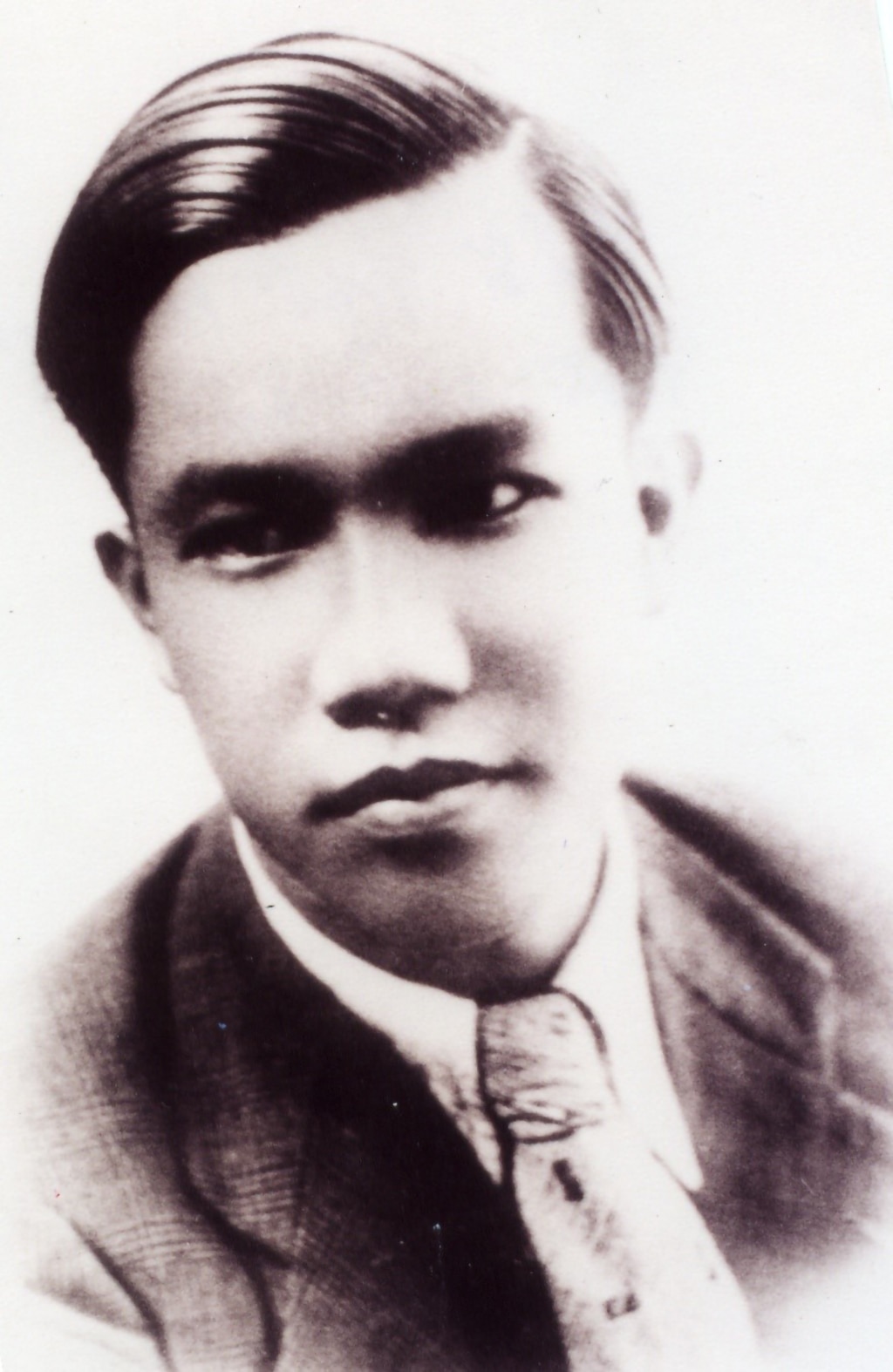
Doctor Tran Huu Nghiep (1911 – 2006) in his youth
In the picture of the great national unity to fight the enemy, the intellectuals who were respectfully mentioned by Dr. Tran Huu Nghiep stood out: "The intellectuals and scholars that you brought into the Viet Minh provincial committee at the beginning, into the provincial government or ran for National Assembly deputies of My Tho province (Diep Ba, Ngo Tan Nhon, Nguyen Phi Hoanh) all followed the revolution until the last day of their lives, not one of them returned to the city."
Doctor Tran Huu Nghiep was born into a middle-class family in Tan Thuy Commune, Ba Tri District, Ben Tre Province. He received a scholarship to Hanoi Medical University and in 1937, he graduated as a doctor and went to Paris (France) for training. At the age of 27, he returned to Vietnam (1938), and married the only daughter of the richest family in Ba Tri. After getting married, Doctor Tran Huu Nghiep and his wife moved to My Tho to open a clinic.
His private practice was located in the center of the provincial administrative agencies, so he witnessed the rapid change of government in 1945 from France to Japan... The August Revolution of 1945 succeeded in My Tho province, "one morning, Mr. Tran Van Hien - Chairman of the People's Committee - came to find me, inviting me to join the provincial Viet Minh Front", Dr. Tran Huu Nghiep recalled. "At that time, there was a specific (Viet Minh) program posted everywhere. Accompanying the new provincial governor was a small, white, slightly short, quiet man named Duong Khuy, whom I later learned was the current Provincial Party Secretary", he said. From here, the provincial Viet Minh Front had two more intellectuals, Dr. Tran Huu Nghiep and trainee lawyer Le Van Chat.
Mr. Nghiep joined the Provincial Front Propaganda Department. His job was to organize afternoon talks at the Thay Nam Tu theater for the people. Most of the listeners were civil servants and city dignitaries. The content was to deliver news sent from Hanoi and Saigon... The memory of doing propaganda work is still vivid in the memory of doctor Tran Huu Nghiep: "I still remember the most convincing opinion was: "Without independence, all of us are like horses and buffaloes", the evidence was that at that time, anyone who wanted to go anywhere had to have a "card" with the commune chief's stamp to confirm that they had paid their personal tax for the year. Otherwise, they would be arrested. The annual personal tax was only about 4 silver coins, but it was a burden for the poor, because the daily wage of a coolie was two cents, a large package of sticky rice cost only one cent. For that reason, many people evaded taxes because they could not afford to pay to buy a living".
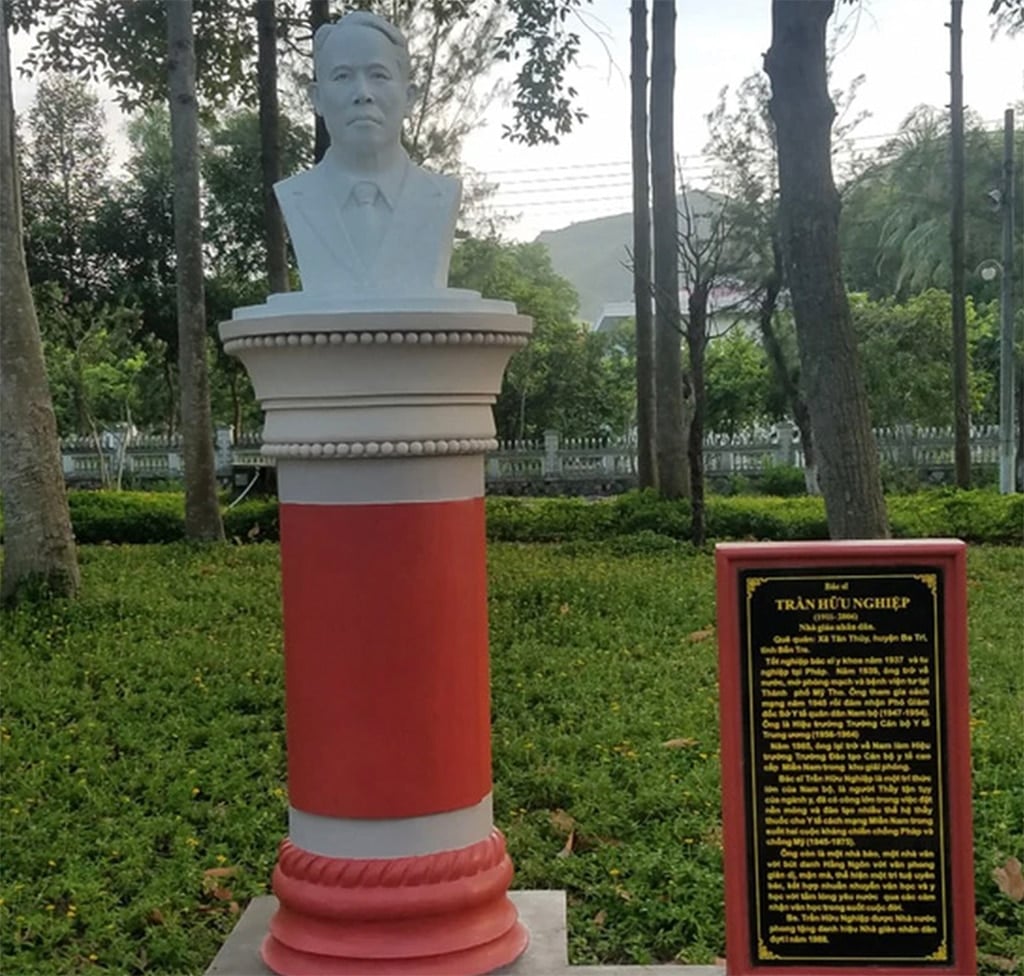
Statue of Dr. Tran Huu Nghiep at the Garden of statues of famous Vietnamese and international medical figures (Quy Nhon City, Binh Dinh)
On the night of October 23, 1945, at 11 p.m., gunfire suddenly erupted from the direction of the Tien River. The French colonialists attacked My Tho. The next morning, the gunfire stopped, he put on a blouse, put on a hospital doctor's cap, carried a leather briefcase, and walked majestically out of town along the main road to join the resistance. From here, he became the Inspector General of the Vietnamese Military Medical Service, Deputy Director of the Southern Health Department.
Leaving behind a life of luxury, Dr. Tran Huu Nghiep set out to fight the resistance. His life was a journey of voluntary dedication, full of hardship, aimed at the goal of national independence.
His wife could not wait and found happiness with someone else. After regrouping to the North, he attended the Congress to establish the Vietnam Fatherland Front (September 1955) and was elected as a member of the Central Committee. The following year,
Dr. Tran Huu Nghiep became the first principal of the Central Medical Cadre School (Ministry of Health). In 1965, he crossed the Truong Son mountain range and returned to the South to become the principal of the Southern School for Training Senior Medical Cadres. When the country was unified, he continued to teach at the Southern School of Health Management until his retirement (1979). In 1988, Dr. Tran Huu Nghiep was awarded the title of People's Teacher for the first time. Under the pen name Hang Ngon, he left behind many works: Treating children when away from doctors (1962); Talking to alcoholics (1981); Talking to smokers (1983); Healthy birth, happy birth; Raising children; Treating children... Time in my eyes (Memoirs - 1993); Special forces of the long-haired army (1990)... Dr. Tran Huu Nghiep's name was also given to a school in his hometown Ben Tre. (to be continued)


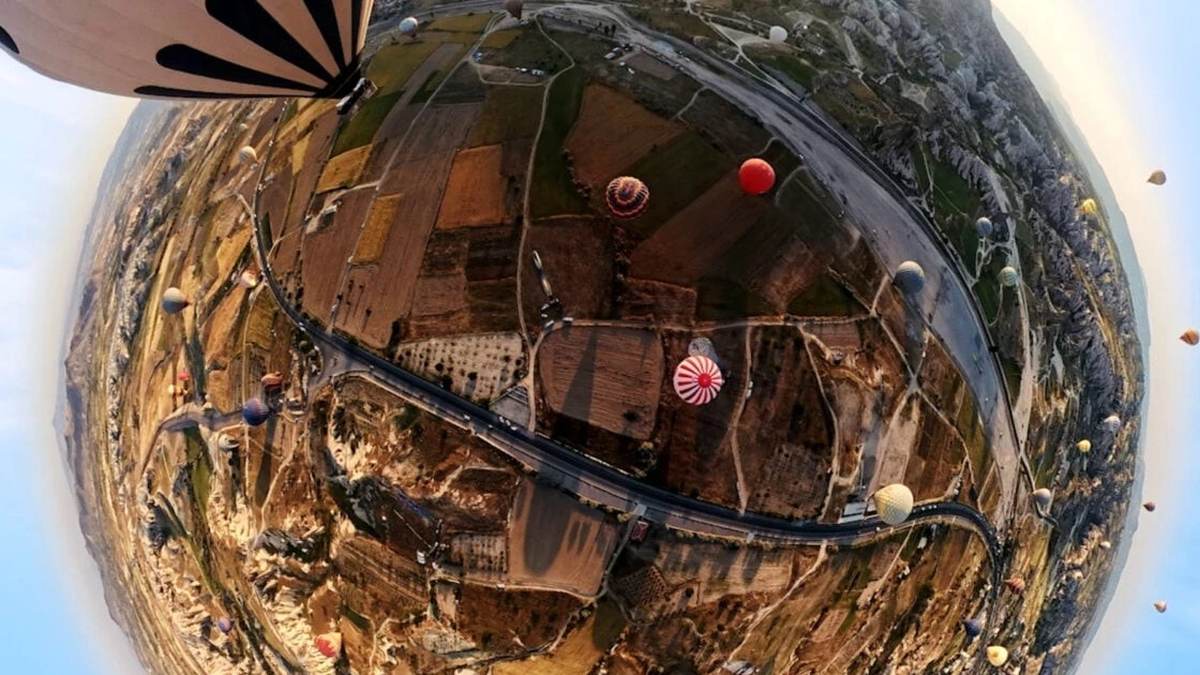
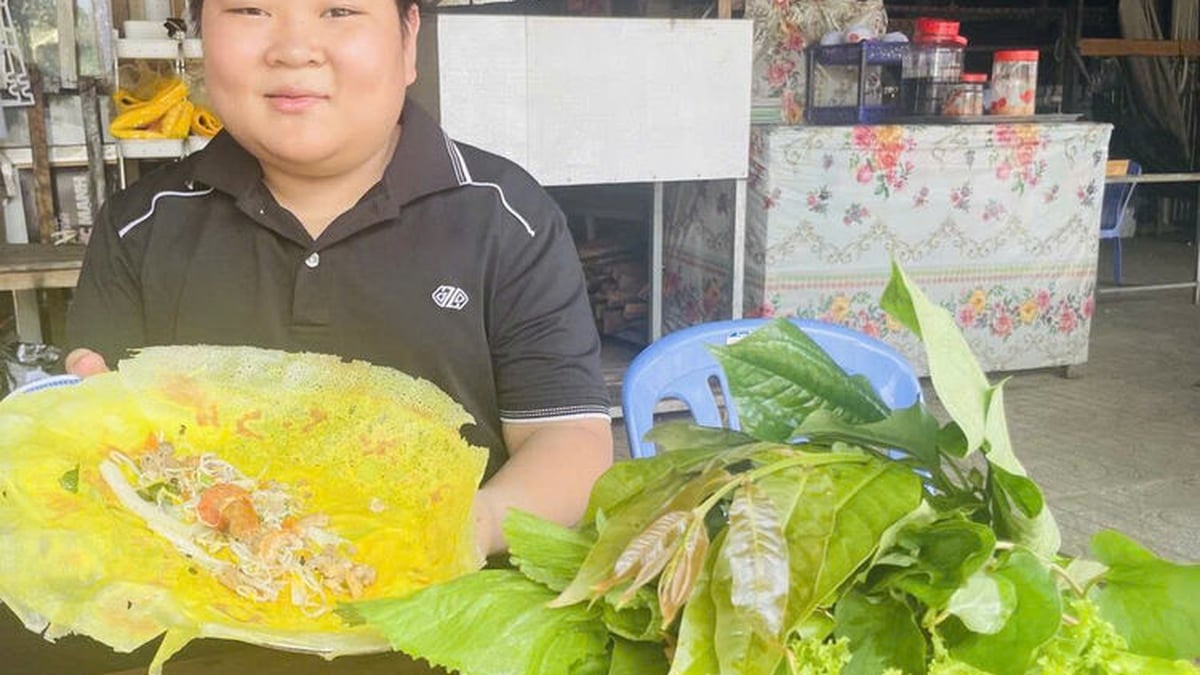
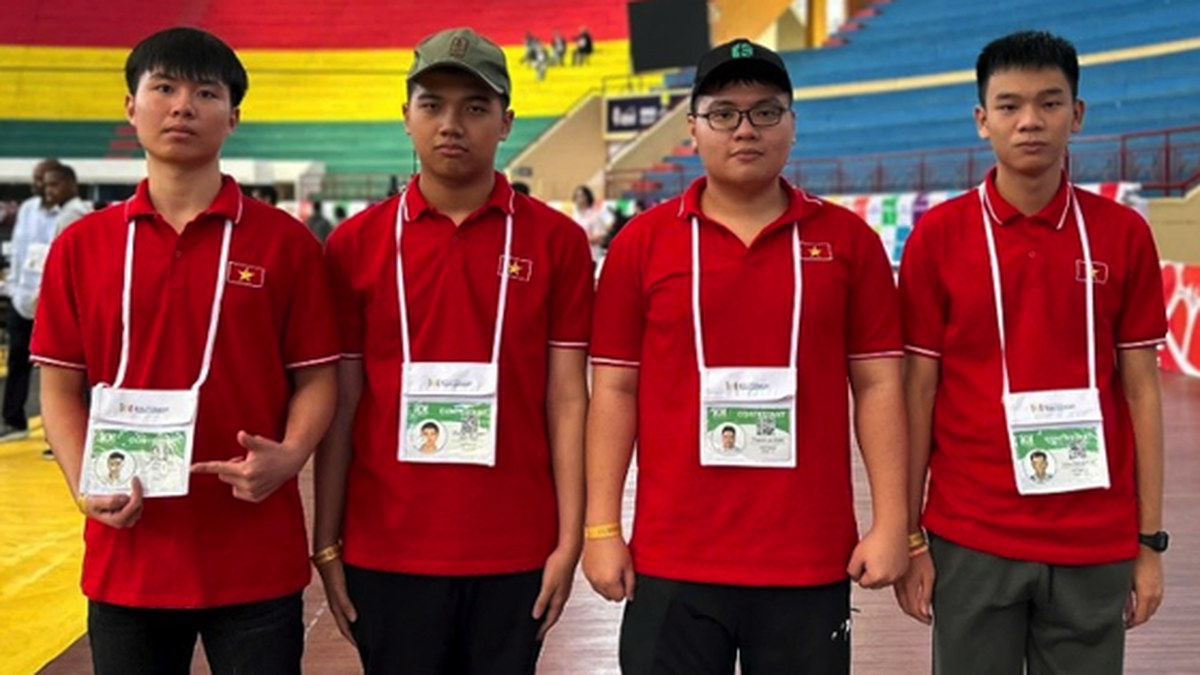
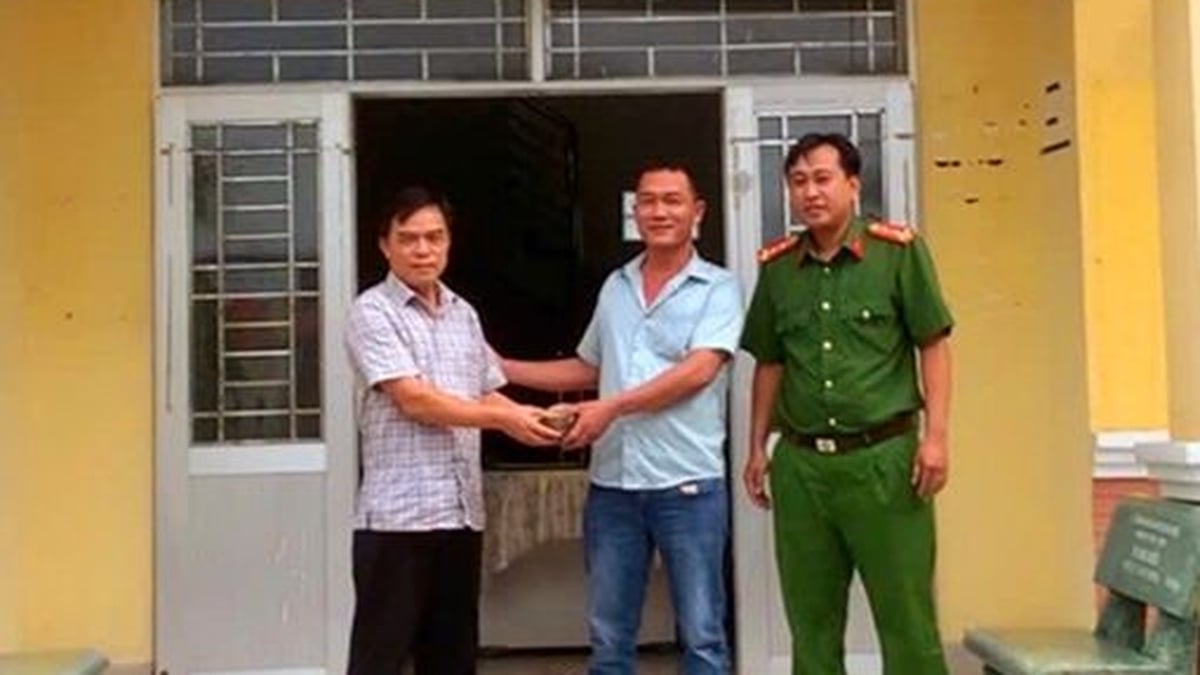

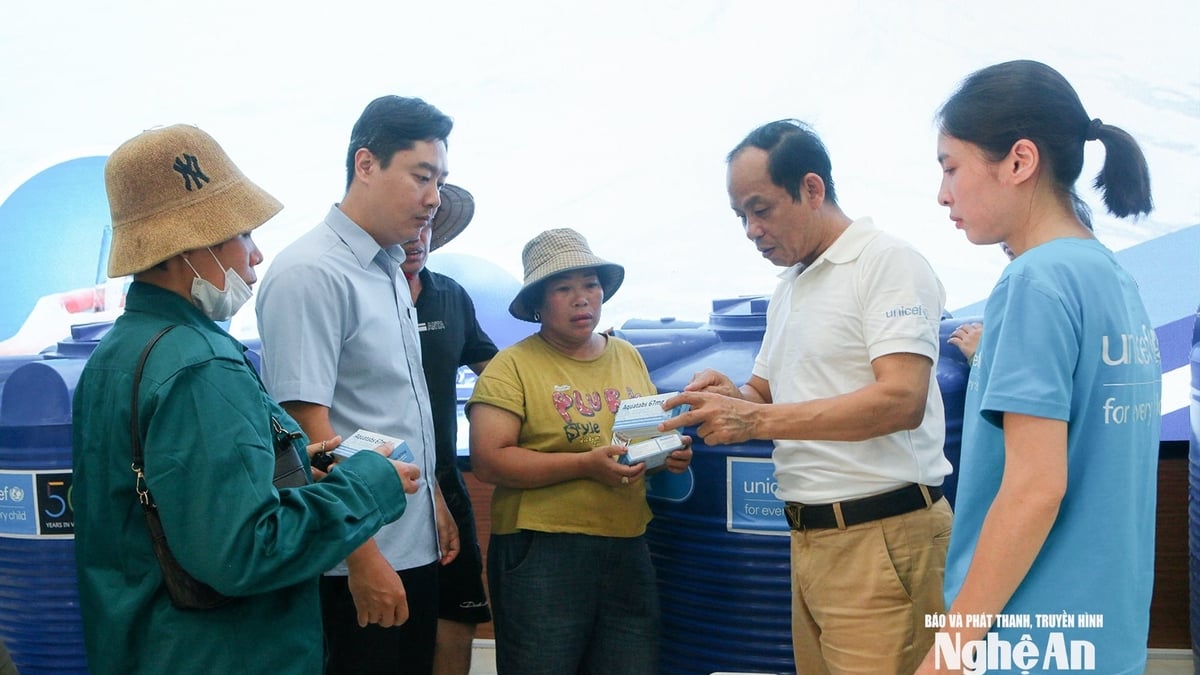

























































































Comment (0)